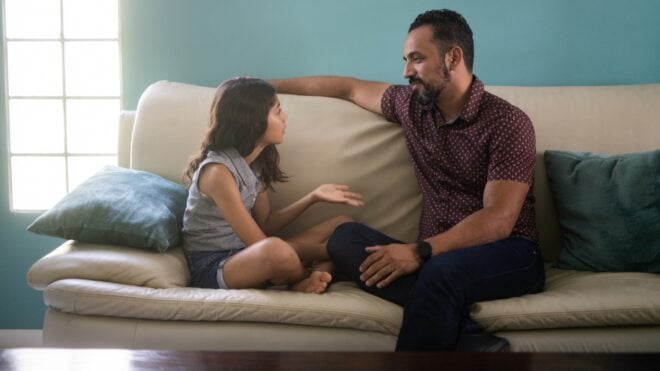
The Presidential inauguration date is Wednesday, January 20, as ordered by the 20th Amendment of the US Constitution. And just like the 2020 election, this year’s event will be unlike any other in history — and not just because our new Vice President is a woman of color.
What is the Presidential inauguration?

The inauguration refers to the ceremony and activities that mark the beginning of a new four-year Presidential administration. The President and Vice President take their oaths of office in front of the Capitol, before an audience that includes past Presidents, Congressional members from both sides of the aisle, and the judiciary – as well as ordinary citizens.
The quadrennial ritual has evolved over the last 230 years, but the President’s oath has not changed (it’s inscribed in Article II of the Constitution): “I do solemnly swear (or affirm) that I will faithfully execute the Office of President of the United States, and will to the best of my ability, preserve, protect, and defend the Constitution of the United States.”
The Vice President is also sworn in. In modern times, the Vice President is sworn in before the President. Since World War II, the Vice President has chosen someone close to perform the honor.
Once sworn in, the new President delivers an inaugural address, which sets out a theme for the new administration. These are the speeches with the most memorable quotes that we end up reading in our history books. In a typical year, the program encompasses a parade, entertainment, and several festive balls celebrating the continuation of the world’s oldest democracy as it undergoes another peaceful transition of power.
But the global COVID-19 pandemic has made large, festive gatherings dangerous. “My guess is there probably will not be a gigantic inaugural parade down Pennsylvania Avenue,” President-elect Joe Biden announced last month. “But my guess is you’ll see a lot of virtual activity in states all across America, engaging even more people than before.”
When the ceremonies are all over, the outgoing President is usually given a courtesy ride home in an Air Force jet as the new President moves into the White House. But the logistics of this year’s moves are going to be different, with President Trump leaving the White House on January 19 and the entire building receiving a COVID deep-clean before the Bidens take up residence there.
Presidential inauguration history

The inauguration ceremony dates back to April 30, 1789, when George Washington stood on the balcony at New York’s Federal Hall (then the new nation’s temporary capital) and became the first to affirm the oath from the newly adopted Constitution: “I do solemnly swear that I will faithfully execute the office of President of the United States, and will, to the best of my ability, preserve, protect, and defend the Constitution of the United States.”
From that point on, the ceremony was held every four years on the constitutionally mandated presidential inauguration date of March 4 – until 1933, when the 20th Amendment was ratified, whittling down the long period between election day and the start of a new administration.
While the Constitution specifies the date of the inauguration and the oath, it does not state where the ceremony should take place. In 1801, Thomas Jefferson took his oath in the newly constructed Senate Chamber, becoming the first President to be inaugurated in the nation’s permanent capital. Presidents from Andrew Jackson to Jimmy Carter were sworn in along the front of the Capitol’s East Portico. Since Ronald Reagan’s inauguration in 1981, the oath has been administered on the Capitol’s west front.
Bad weather and other events have sometimes forced the oath of office to be administered in other locations indoors. Lyndon Johnson was famously sworn in for the first time on Air Force One, as he accompanied the slain body of President Kennedy back to Washington.
Presidential inauguration 2021: COVID-19 and safety concerns mean high-alert

In 2021, concerns over COVID-19 – and security — will make this inauguration different. “My husband and I talked about going to DC for this inauguration,” Linda Schwartz, a Sacramento area mother of three, told Mom.com. “Instead, he’ll sit with me and we will be opening a bottle of champagne. And I plan on celebrating. And Zooming with my family.”
There is a bipartisan Joint Committee on Inaugural Ceremonies for planning the logistics and Presidential inauguration timeline. In typical years, the Committee distributes around 200,000 tickets to members of Congress to pass on to their constituents. Thanks to COVID-19, they have only issued a little over 1,000 tickets this year — enough to cover each of the 535 members of Congress plus one guest. Everyone participating will be complying with COVID-19 safety measures: masks, social distancing, and the like.
In addition to changes necessitated by the pandemic, the 2021 inauguration is taking place just two weeks after a historic insurrection at the Capitol. The Secret Service has ordered heightened security to ensure the safety of this year’s participants.
In many other ways, the event will be consistent with past inaugurations: The oaths of office will be followed by the new President’s inaugural address. There will be a military Pass in Review, which shows off the readiness of the troops. And as in past years, the Bidens will be escorted on foot back to the White House by representatives of each branch of the military. But this year, the street will not be lined with throngs of cheering onlookers, and there will be extra security every step of the way.
The Biden-Harris Inaugural Committee has also announced a virtual parade that will include participants from all over the country. This is being produced by the same team that organized July’s Democratic National Convention.
Other differences this year are related to the very weird political moment we are in. The outgoing President is traditionally among the inaugural attendees, and it is usual for him and the First Lady to host the President-elect and his wife and walk or ride together to the Capitol. But as of this writing, President Trump has indicated that he will not attend Biden’s inauguration at all.




